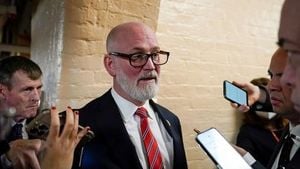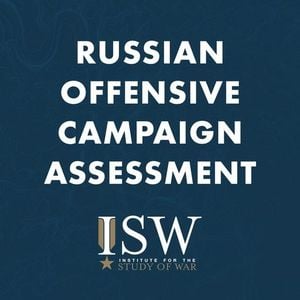On September 22 and 23, 2025, the U.S. banking sector found itself at the center of both market excitement and regulatory evolution. From Wall Street’s record-setting highs to sweeping legislative changes in Illinois, the landscape for banks and investors alike is shifting in ways that could have broad implications for the months ahead.
According to CNBC, the S&P 500 remained relatively flat on Tuesday, September 23, while the Dow Jones Industrial Average climbed 0.5% and the Nasdaq slipped by 0.3%. These moves came after all three major averages closed at historic highs on Monday, a feat that’s become increasingly common thanks to the relentless momentum of megacap technology stocks. Yet, as Jeff Marks, portfolio director at the CNBC Investing Club, pointed out, "while the average stock has not been as good," it’s the tech giants that are truly driving the market’s gains. This dynamic has left the S&P 500 Short Range Oscillator at a neutral 1.16%—a sign that the market is neither overbought nor oversold. In other words, investors are still searching for direction, even as headlines trumpet new records.
One of the most significant stories fueling this market optimism is the ongoing surge in artificial intelligence investment. On Monday, AI chip leader Nvidia announced a $100 billion investment in OpenAI, which plans to deploy at least 10 gigawatts of AI data centers powered by Nvidia’s processors. The partnership aims to supercharge AI infrastructure across the U.S., and Nvidia’s shares responded by jumping nearly 4% before giving back some of those gains the next day. This deal is expected to benefit not only Nvidia, but also industrial players like GE Vernova, which manufactures gas turbines for data centers, and Eaton, a supplier of critical electrical equipment. As CNBC noted, "this partnership does come with some risks," including concerns that Nvidia could be acting as a "lender of last resort by bailing OpenAI’s overextended commitments." There are also questions about whether Nvidia’s funding of customers who then buy its chips could artificially support demand. Still, for investors like Jim Cramer and his team, "Nvidia’s price performance and return on investment of its chips matter most to us."
While technology stocks have captured much of the spotlight, bank stocks are quietly enjoying a renaissance of their own. On Tuesday, shares of Wells Fargo, Goldman Sachs, Capital One, and BlackRock all trended higher, a continuation of the sector’s recent strength. Jim Cramer, the ever-watchful market commentator, revealed he’s considering taking some profits on one of these holdings, noting, "while they’ve all seen huge gains, we don’t want to sell winners to fund losers." The rally in bank stocks has been largely attributed to growing expectations that the Federal Reserve will continue to cut interest rates following its first reduction earlier in September. If the Fed stays the course, Cramer believes "these banks will remain great plays."
But it’s not just the markets that are evolving—so too are the rules that govern how banks operate, at least in Illinois. On September 22, 2025, the Illinois Banking Act was amended under HB3467, a move designed to harmonize the state’s banking laws with the Illinois Savings Bank Act and modernize several outdated provisions. The changes, which were supported by the Illinois banking community, represent a significant step toward greater flexibility and efficiency for state-chartered banks.
One of the most consequential updates is the expansion of banks’ ability to pledge assets as security for deposits. Previously, Illinois banks could only secure deposits for certain types of depositors, such as the federal government or state agencies. Now, thanks to HB3467, banks can pledge assets to secure any type of deposit, regardless of who the depositor is or the purpose of the deposit. This change is intended to level the playing field and provide banks with more tools to attract and retain depositors. However, as noted in a legal update, there is a cautionary note: "secured creditors have priority in the event of insolvency (to the extent of their security), and permitting banks to secure some deposits and not others could cause additional losses to the federal deposit insurance fund, and place some uninsured depositors in an unfavorable position."
The new law also broadens the powers of Illinois banks, authorizing them to provide data processing services to others and to invest in commodity derivatives. These activities are already permissible for national banks, and federal law generally prohibits state-chartered banks from engaging in activities not allowed for their national counterparts. In practice, this means that while the amendment clarifies state law, it doesn’t necessarily open the door to new activities unless federal regulators agree. As the update explains, "to the extent that HB3467 intended to authorize Illinois banks to engage in activities that are not permissible for a national bank... the federal prohibition will prevent insured Illinois banks from relying on HB3467."
Another area of reform is the rules governing bank-owned real estate. Previously, Illinois banks could only hold real estate acquired through debt collection or no longer used for bank premises for up to 10 years. HB3467 now allows banks to hold such real estate for the longer of 10 years or the maximum period permitted for national banks—usually still 10 years, but offering some flexibility if federal law changes in the future.
The legislation also brings Illinois banking governance into the digital age. Banks are now authorized to provide notice of shareholder meetings electronically, offer access to shareholder lists via online portals, and hold meetings through conference calls or interactive technology—so long as shareholders can still participate and vote. This modernization aims to make corporate governance more efficient and accessible, especially in an era where remote participation is becoming the norm.
On the employment front, HB3467 streamlines compliance by aligning state and federal rules on hiring. Illinois law already prohibited banks from employing individuals convicted of felonies or crimes involving dishonesty or breach of trust, mirroring federal requirements. The new amendment makes it clear that "compliance with the federal employment prohibition is deemed compliance with the state prohibition," reducing regulatory complexity for banks and potential employees alike.
All told, these legislative updates are designed to make Illinois banks more competitive and adaptable, even as they remain bound by the broader framework of federal banking law. For the state’s financial sector, the changes are less about revolution and more about evolution—catching up with national standards, embracing new technologies, and clarifying longstanding ambiguities.
As the market continues to digest the implications of Federal Reserve policy, AI-driven investments, and state-level reforms, one thing is clear: the banking sector is undergoing a period of rapid transformation. Whether these changes will translate into sustained gains for investors or simply a new set of challenges for regulators remains to be seen. But for now, both Wall Street and Main Street are watching closely, eager to see what the next chapter will bring.





